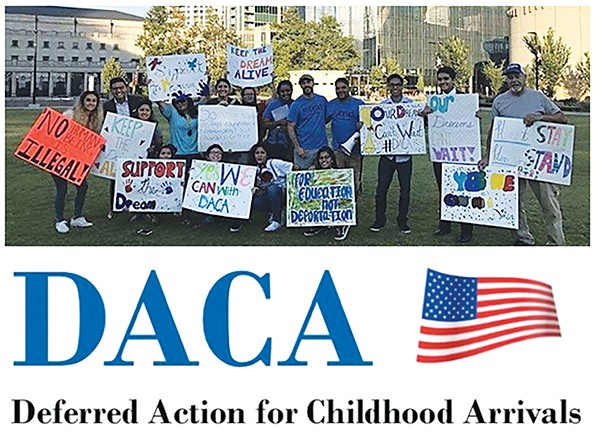Ten years ago, 41 senators voted down the “Dream Act” which — if passed — would have allowed young people not born in America but brought here by migrant parents the opportunity to apply for U.S. Citizenship. Last week, the United States Supreme Court held that the Trump Administration’s decision to end the Obama-era protections for these vulnerable young people was “arbitrary and capricious.” Mr. Trump may not begin deporting these so-called “Dreamers,” at least for now.

In 2012, with the failure of Congress to pass the Dream Act, and right before his election to a second term, Mr. Obama took executive action in what is commonly referred to as DACA — Deferred Action for Childhood Arrivals. This action acknowledged the political reality of that time, i.e. that if the Congress would not act to protect children from deportation, he would.
[pullquote-2] In Tennessee, there are about 8,500 DACA recipients; in Memphis, approximately 1,800. They are young people who are not U.S. citizens but have lived here most of their lives, and hope to stay here. They attend public schools and universities, they serve in the armed forces, and they are working in healthcare as the nation faces the COVID-19 crisis.
Toward the end of his presidency, President Obama attempted to expand DACA and implement DAPA, which offered deferred action (concerning deportation) and some benefits, such as work authorization to the parents of DACA recipients.
Fast forward to 2015. Candidate Trump began his political campaign, as we remember all too well, by demonizing immigrants, especially undocumented persons, and with laser-like focus attempted to overturn any action taken by President Obama. During the notorious speech announcing his candidacy, the future president characterized the undocumented by saying, “They’re bringing drugs, they’re bringing crime. They’re rapists.” Thus, the battle was engaged.
Upon assuming the presidency in January 2017, Trump continued his anti-immigrant rhetoric. In 2018, the president pushed to end DACA, but did not want to rescind it unilaterally, since 76 percent of the American population supports DACA.
Trump’s inaction, coupled with an increasingly vocal political base, together with anti-immigrant hardliners in his administration, including Stephen Miller, created a mini-judicial revolt when seven states, led by Texas, argued that Obama had overstepped his authority in signing DAPA and the expanded DACA. The Fifth Circuit ruled in their favor — that the Obama administration had overreached by offering benefits to DAPA recipients.
Based on this ruling, the Trump administration quickly (and haphazardly) declared that Obama’s 2012 implementation of DACA was illegal and announced its end. This ultimately led to a variety of legal challenges — the result being the 5-4 Supreme Court decision on June 18th declaring the Trump administration’s attempt to overturn Obama’s executive order as “arbitrary and capricious.” In other words, the administration failed to engage in “reasoned decision making” in coming to its resolution to rescind DACA.
Ironically, the surprise 5-4 decision (with Chief Justice Roberts writing for the majority) was not a declaration of immigrant rights, but a finding of a somewhat mundane violation of the Administrative Procedures Act. In arriving at this outcome, Justice Roberts cited a landmark case near and dear to the people of Memphis. Citizens to Preserve Overton Park v. Volpe (1971), which declared that administrative decisions could not offer “post-hoc rationalization;” in other words, evidence and arguments cannot be added in after the fact as efforts to bolster earlier decisions, which the Supreme Court found objectionable in both cases.
[pullquote-1] Yet, preservation of DACA was never intended as an end in itself; DACA was seen as a protective bridge toward Congressional action. DACA provides no lasting relief for its beneficiaries who continue to live, learn, and work in a quasi-legal status that provides no permanent protections.
While we celebrate this temporary reprieve, it is only temporary. This November, with possibilities of a new president and stronger leadership in Congress, we could see some hope for Dreamers. They want to live here in America in peace — free to work, study, and contribute to our nation as we struggle forward together. Only voters, together with the government we select in the fall, can offer the affirmation of rights and relief that Dreamers deserve.